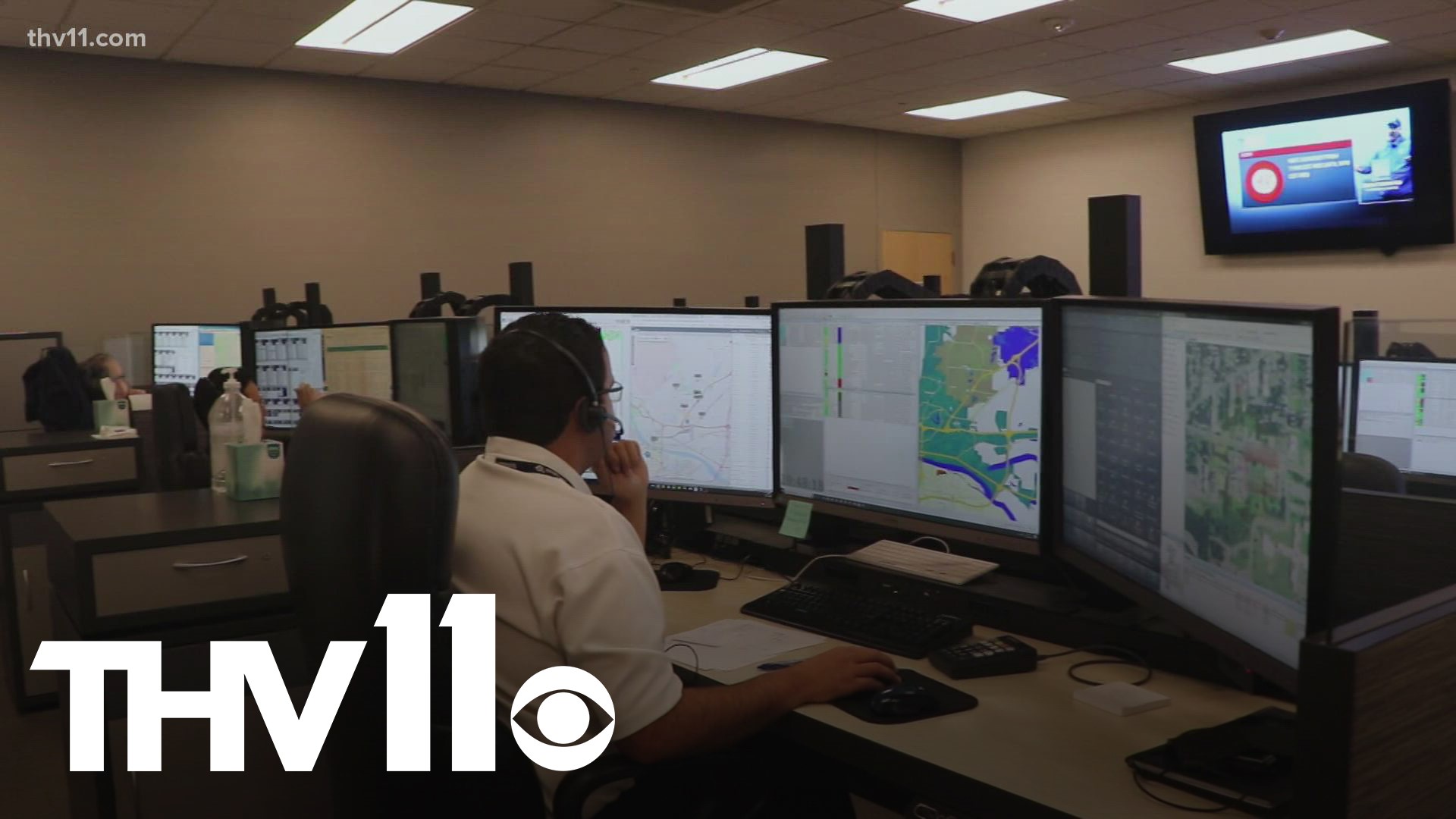LITTLE ROCK, Ark. — The rising hospitalization numbers and low COVID-19 ICU beds are creating a tough task for the state's COVID Comm system.
It was created back in December to find available bed space for COVID patients, but according to Program Director Jeff Tabor, the difference between the winter months and the current summer months are "night and day."
He said despite there being a larger number of patients back in the winter months, the job is more difficult now because of the longer ICU stays and low hospital staffing.
"It is the recipe for the perfect storm, thus the problem we can experience when placing COVID patients," Tabor said.
He is the program director for the state's COVID Comm System.
Tabor said it's a job that brings more challenges each day.
"I would say almost from the beginning of the summer surge it's been a different flavor, but the last couple of weeks have been more difficult," he said.
Weeks that, Tabor said, have been filled with hospitalizations and record breaking ICU admissions.
"It is hard. It's very hard. The patients are a very different demographic. They're younger and they're very much a sicker population," he said.
The sicker the patients, the longer their ICU stay.
According to Tabor, this means fewer beds available and more possible patients transferred from across the state.
"We've coordinated from Bella Vista to El Dorado, from West Memphis to Fayetteville, and all corners in between," he said.
Colors of red and green fill the system's dashboard every day: red meaning "no capacity" and green meaning "availability."
Tabor said those colors change a lot of times depending on when patients are discharged from the hospital.
"We'll see in the mid-mornings to mid-afternoons the green starts popping up ever so briefly sometimes, and that's when we'll strike," he said.
The fluid nature of hospital capacity is why the number of ICU beds available can change within hours. But according to Tabor, sometimes that availability isn't possible due to low staffing.
"It's the house keeping staff, it's the food services, it's the respiratory therapists, it's the phlebotomist, it's everything," he said.
While this domino effect continues, Tabor said the community has to step up.
"The public has skin in the game. Only the public can fix this," he said.
Tabor said while COVID is indirectly affecting the trauma system, so far they have been able to successfully transfer every trauma patient without delay.

